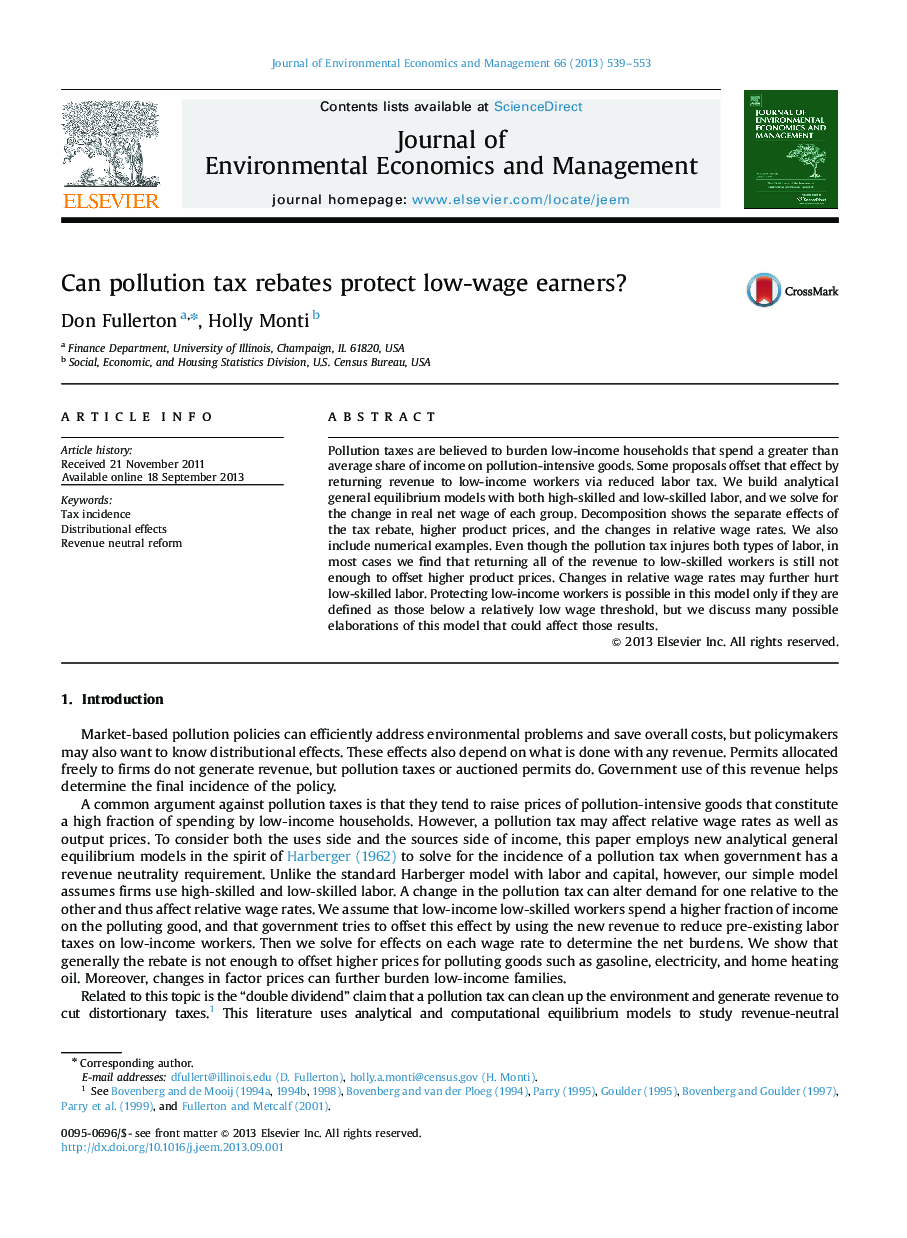| Article ID | Journal | Published Year | Pages | File Type |
|---|---|---|---|---|
| 958930 | Journal of Environmental Economics and Management | 2013 | 15 Pages |
Abstract
Pollution taxes are believed to burden low-income households that spend a greater than average share of income on pollution-intensive goods. Some proposals offset that effect by returning revenue to low-income workers via reduced labor tax. We build analytical general equilibrium models with both high-skilled and low-skilled labor, and we solve for the change in real net wage of each group. Decomposition shows the separate effects of the tax rebate, higher product prices, and the changes in relative wage rates. We also include numerical examples. Even though the pollution tax injures both types of labor, in most cases we find that returning all of the revenue to low-skilled workers is still not enough to offset higher product prices. Changes in relative wage rates may further hurt low-skilled labor. Protecting low-income workers is possible in this model only if they are defined as those below a relatively low wage threshold, but we discuss many possible elaborations of this model that could affect those results.
Keywords
Related Topics
Social Sciences and Humanities
Economics, Econometrics and Finance
Economics and Econometrics
Authors
Don Fullerton, Holly Monti,
